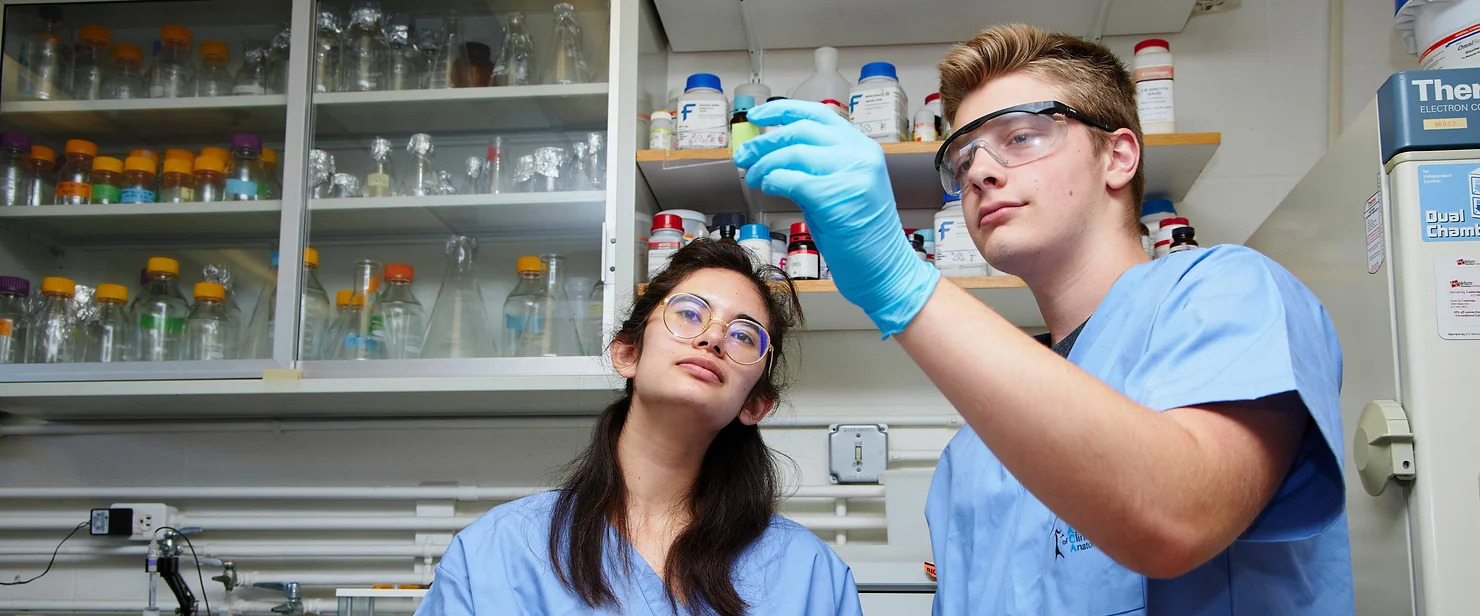10 Research Opportunities for High School Students


Research is becoming an expectation for students who want to be competitive for admission to top universities. Yale, Columbia, and the University of Pennsylvania now ask students to submit research papers on their applications, and these same institutions have stated publicly that the majority of admitted students have published research during high school.
This makes sense, as doing research in high school allows students to demonstrate that they have gone above and beyond what is expected of normal high school students, and that they have taken advantage of every opportunity to advance their skills and knowledge to the college level.
High schools are recognizing this expectation, and many have responded by offering for-credit research programs on campus. Additionally, organizations like Indigo Research match students with elite research mentors to guide students through the completion of these kinds of projects. Whichever way you decide to conduct your research, if you’re interested in admission to an elite university, you should plan to complete a research project before applying to college.
With so many options out there for research mentorship, it can feel overwhelming to get your project off the ground. We’re here to help you make the right choice. Take a look at our guide below to learn about various routes you can take to add this important element to your profile.
As we’ve stated above, several high schools offer research opportunities as part of their curriculums, and some even require it for graduation. For example, the IB program requires students to produce an extended essay, an independent research piece, in order to complete the program. Cambridge International AS & A Level curriculums require students to take Global Perspectives and Research, a skills-based course in which students write a research paper. If your school offers one of these programs, it is recommended that you take advantage of it. Even if you end up doing research outside of school as well, completing the school’s research curriculum is often essential for demonstrating that you’ve taken the most rigorous course load available at your school, which is crucial for admission to top universities. If you are unsure if your school offers these programs, talk to your academic advisor to discuss your options.
Many universities offer hands-on research opportunities for high school students in the form of on-campus summer research programs, where students can take part in undergraduate-level research. While these programs don’t always give you the opportunity to write a research paper and pursue publication, they do give you experience in a lab and/or college classroom setting, which can help you prove to universities that you are ready to handle college level rigor. These programs cater to both STEM and humanities students. Some examples include UCSB Summer Research Academies or Research Mentorship Program, UC Davis Young Scholars Program, UPenn Summer Research Academies, Columbia SHAPE, USC SHINE, UC Irvine’s GATI programs, Stanford Institutes of Medicine Summer Research Program, Rockefeller University Summer Science Research Program, High School Youth Researcher Summer (HYRS) Program, and many many more.

Through research-based internships, high school students can access first-hand immersive research experiences while working with professionals in their industry of interest. These internships aim to sharpen students’ research skills and provide a platform for students to investigate whether research is a career path that interests them. These can be extremely competitive because they are often free of fees or offer stipends to students. Examples of research-based internships include Research in Science & Engineering (RISE) Internship, Stanford Institutes of Medicine Research Bioengineering Internship, A*STAR Research Internship Award, and Research Assistant Program (Singapore).
Essay competitions ask students to conduct research and offer a response to a prompt. Because many students submit to these competitions and only a few receive recognition, you will boost your profile substantially if you are able to write a winning essay. Some examples of these academic writing competitions include the John Locke Institute Essay Competition, the Robert Walker Prize for Essays in Law, the Harvard International Review Essay Contest, the John F. Kennedy Profiles in Courage Essay Contest, and many more.
Non-academic competitions can also promote research but in a more applied and practical manner. For example, the Community Problem Solving Competition (CMPS) requires students to identify and address a local or national social problem. In the process, students gather data, research these problems, and present them to a panel of judges. Projects may focus on civic and cultural issues, education, the environment, health concerns, and human services.

Certain student clubs such as Model United Nations, Debate, and Moot Parliament or Moot Court can also provide research opportunities in the form of weekly training events, helping students to hone their persuasive and oratorical skills. For more science-inclined students, these same opportunities exist in robotics and/or math & sciences clubs. While these opportunities don’t typically offer students chances to publish a research paper, they can help students increase their understanding of their field of interest which can set them up for more success when they eventually write their first research paper.
Aside from research programs provided by universities, there are also research programs provided by established institutions designed specifically for high school students. Students in New York for example can consider working with the NYC Science Research Mentoring Consortium, which is organized by the American Museum of Natural History and is composed of more than a dozen programs throughout the city. There is also a great summer research experience for pre-med students in New York called the Sloan Kettering Summer Student Program. Other examples include the Summer Science Intensive, which is organized by the US Department of Energy and the Joint BioEnergy Institute, the Summer Science Program, and the US Naval and Air Force Research Lab programs for high schoolers.
If you decide not to pursue an established research program, you can consider pursuing a research project through an informal partnership. Many students are able to conduct research and form relationships with university professors by cold emailing them and establishing connections. Keep in mind that this approach is challenging and not guaranteed to yield results. Students who tend to succeed cold-emailing professors are usually high achieving students who have already conducted some research in their area of interest. It’s always best to reach out first with specific questions about your research that you think the professor would have helpful answers to. This allows you to establish contact and make a strong first impression before asking for anything further. Again, try talking to your academic advisor about this option.
Other informal research arrangements can be established by reaching out to researchers at professional labs via LinkedIn, or by asking teachers at your school for either direct guidance on the project or contacts they may have that you could reach out to. Be sure to attach a cover letter explaining the project you are pursuing and a resume to these emails!
If you’re looking for direct and complete support to bring your project all the way from start to finish, Indigo Research offers qualified students the opportunity to complete an in-depth, independent research paper with guidance from PhD, Post-Doc, and top university faculty mentors. We have research mentors who can guide students across virtually any discipline, and can walk them through the entire research process from topic generation to data analysis to publication. Reach out to us to book an informational call today!



Indigo Research Intensive Seasonal (IRIS) Programs is an intensive research program that is designed specifically for high school students. You'll have the opportunity to work alongside top professors from prestigious UK and US universities, who will mentor you in your chosen field.
.png)
Indigo Research Intensive Seasonal (IRIS) Programs is an intensive research program that is designed specifically for high school students. You'll have the opportunity to work alongside top professors from prestigious UK and US universities, who will mentor you in your chosen field.